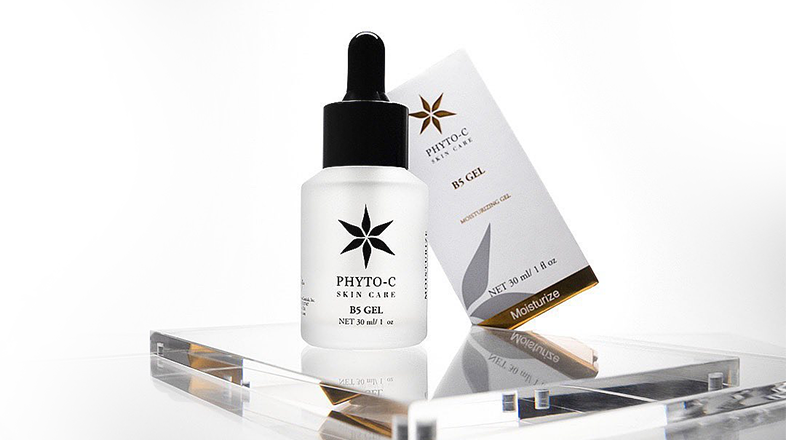Proper use of vitamin C serum by those with oily skin helps prevent both pimples and oil-related skin issues. Most individuals believe that all skincare items function identically for different skin types, although oily skin needs unique care procedures. Rinsing your skin with water within ten minutes after using vitamin C is crucial because it enables the product to double in effectiveness. The key is to utilize a proper amount of serum. Moreover, never double up on vitamin C products, as this can reduce the overall potency. Users should monitor these mistakes when applying face serum for oily skin to achieve glowing, healthy skin.
Using Too Much of the best face serum for oily skin
People often misconceive that doubling the amount of serum application will bring better outcomes for their skin. The use of high quantities of best face serum for oily skin leads to enhanced oiliness in addition to destroying the normal gloss of oily skin, which results in an unattractive greasiness. The required dosage is one or two drops that will properly coat the entire face using a minimal amount of the product. Using an amount of product that exceeds recommended levels creates pore blockage, which leads to the development of acne breakouts. The correct approach involves minimal use of the serum since the consistent application allows its beneficial effects to develop over time.
Choosing the Wrong Formula
Various vitamin c face serum available in the market may not match the needs of individuals with oily skin conditions. Serums with thick or heavy oils and obtrusive components often worsen both shine effects and blockage in pores. People who have oily skin need to select water-based serums, which should feel lightweight on their skin. The ideal selection for vitamin C serums is L-ascorbic acid because it penetrates fast without creating residue. When selecting a serum, people should read the label contents to identify "oil-free," "non-comedogenic," and "lightweight" characteristics that reduce the risk of pimples and oil buildup in their skin.
Applying on Dirty Skin
Your face needs to be clean prior to administering the vitamin c facial serum. Race serum fails to deliver its optimal benefits when dirt, oil, or residual makeup prevents penetration. The serum stays situated on top without penetrating deeper layers, which could generate product accumulation together with increased oil levels. The combination of a light cleansing agent alongside toner results in optimal vitamin C serum absorption because these products eliminate debris and prepare pores for better skin penetration. The skin's cleanliness enables deep penetration of vitamin C so it utilizes its highest lightening power and protected antioxidant feature.
Skipping Moisturizer After Application
People who have oily skin Choose to omit moisturizer right after putting on their serum. The absence of moisturizer causes an overproduction of skin oil to replace lost water content. Applying vitamin c serum for face functions independently from the basic requirement for the use of suitable moisturization products. Oily-skinned people should choose moisturizers that do not contain oil since they provide hydration while maintaining a dry skin appearance. The skin barrier stays healthy when you use moisturizer; thus, your skin produces less oil naturally.
Mixing with the Wrong Products
The combination of specific skincare products with vitamin C leads to skin irritation while triggering dehydration and potentially stimulating oil layer releases in the skin. When exposing vitamin C to strong exfoliants, including glycolic acid and benzoyl peroxide, skin becomes red and its oil levels experience instability. Using retinol together with vitamin C according to improper application methods creates dry skin conditions that drive the skin to produce natural oil. People with oily skin need to apply vitamin C during the daytime and should use retinol or exfoliating products at night unless they want to experience extra skin irritation.
Ignoring Patch Testing during vitamin c skincare
Each skin type behaves uniquely toward skincare substances, where oily skin represents just one such distinctive case. The application of a new vitamin c skincare may lead some individuals to develop breakouts alongside redness and sensitivity in their skin. Anyone should perform a skin test before using this serum over their complete facial area to prevent adverse reactions. A tiny dab of serum needs to be placed on either the inner arm or jawline before keeping it there for 24 hours for reaction monitoring. A product that leads to no skin irritations should be considered safe for application. Performing this easy test before adding the new product will stop breakouts while letting you smoothly begin your updated skincare regimen.
Not Using Sunscreen
Exposure to UV radiation becomes heightened after using vitamin C since this ingredient both lightens skin tone while fighting age-related deterioration. Because of their concern about skin becoming oily, some people with oily skin avoid sunscreen application. Leaving out sunscreen during vitamin C usage will result in sunburns and dark spots along with early skin aging. When using sunscreen to protect skin from UV harm, individuals need to apply a lightweight, oil-free sunscreen that provides at least SPF 30. Select "matte finish" or "oil-free" products when attempting to keep your face shine-free during daytime hours.
Applying at the Wrong Time
When using vitamin C serum, people must pay attention to timing, as it determines how effective the serum will be. The optimal moment to put on vitamin C comes right before using sunscreen during morning routines. It enables the skin to receive antioxidant benefits that guard against environmental hazards, including UV rays and pollution. There is a misconception that people should apply 20 vitamin c serum at night, yet the protective advantages work best throughout daytime hours. To deliver maximum benefits, the skin needs a cleaning routine the application of vitamin C serum and moisturizer, and a final step in sunscreen application.
Expecting Instant Results
Most people expect instant results from applying vitamin C serum immediately after starting its usage. The same process of commitment applies to vitamin C solutions as it does to other skincare solutions. Regular use of vitamin C serum for several weeks leads people to experience visible enhancements in skin shade together with texture quality and luminosity.
Unmoderated use of the product to accelerate outcomes might trigger negative side effects, including skin irritation and acne breakouts. People should maintain their skincare routine until the serum demonstrates its gradual effects. Vitamin C usage will deliver better results when people combine it with routine skincare essentials, which include cleaning followed by moisturizing. The visual recording of changes across different time intervals lets you identify better skin conditions while avoiding unrealistic goals.
Over-Exfoliating the Skin
The practice of exfoliation remains essential, yet excessive execution removes skin oils and forces the body to produce additional oil. The combination of harsh scrubs or many chemical exfoliation sessions along with vitamin C application will damage the skin barrier through irritating effects. People with oily skin should use gentle exfoliants that should not exceed three times weekly application.
Regular exfoliation preserves pore clarity by avoiding both increased oil production and skin sensitization. When exfoliating skin with vitamin C, precautions must be taken since regular combined use might create increased sensitivity and redness. A harmonious method of use allows users to receive the advantages while protecting their skin from damage.
Using Expired or Oxidized Vitamin C Serum
Using vitamin C serums beyond their expiration date causes them to become oxidized, thus making the product both useless and possibly dangerous for skin application. The oxidative process turns vitamin C into yellow or brown tones when it reaches its expiration date. The use of oxidized serum leads to skin irritation while providing no helpful effects.
Vitamin C serum should stay fresh when stored in cool, dark conditions, while you should monitor the color and scent for any alterations. A proper storage method alongside stable formulation solutions leads to better potency of the product. Small bottles should be your choice if you find it difficult to finish a serum before oxidation occurs since you need to check product expiration dates. Vitamin C products freshly extracted from their raw form provide the best skin benefits by minimizing adverse impacts.
Using Vitamin C Without Hydrating the Skin
Vitamin C works best on well-hydrated skin. Oily skin still needs hydration but in a balanced way. Before using vitamin C skin care products, people should use hydrating toners and lightweight hyaluronic acid serums that optimize absorption while sustaining healthy skin. The treatment method allows the serum to penetrate deeply through the skin without causing dryness or unwanted oil increases. The skin barrier obtains better protection through hydration, as hydration minimizes potential vitamin C-related irritations. The compromise mechanism of the skin triggers excessive oil production when skin becomes dehydrated, even among those whose natural state involves oily skin. A moisturizer without oil should be applied following vitamin C to create stability and stop your skin from becoming too oily.
Conclusion
Proper application of vitamin C serum transforms oily skin into a better state than before without making it more wet or dermally compromised. When applying vitamin C serum correctly and by avoiding common errors like frequent use and no sunscreen, the serum becomes effective for producing healthy results in the skin. Phyto-C products are a dermatologist recommended vitamin c serum for sensitive skin. It constitutes your best skincare option because they consistently provide excellent skincare results. Any skin improvement will require both selecting the appropriate serum and establishing daily skin habits with cleansing, moisturizing, and protection from UV rays to achieve maximum benefits. Small modifications aimed at preventing regular mistakes will boost vitamin C effectiveness while maintaining clear and radiant skin throughout time.





